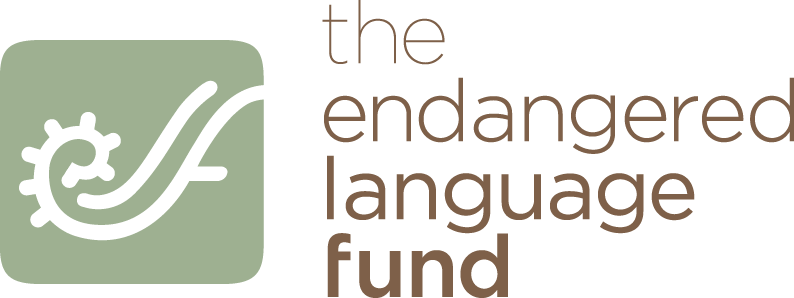2019 is the UN International Year of Indigenous Languages!
Methods and Resources for Revitalizing and Reclaiming Languages
- Teaching Indigenous Languages focuses on "the linguistic, educational, social, and political issues related to the survival of the endangered indigenous languages of the world." The article "Some Basics of Indigenous Language Revitalization" is a good introduction. See also "Maintaining and Renewing Native Languages."
- Turtle Island Native Network Spotlight on Language updates and news articles on native languages worldwide.
- Where Are Your Keys? provides interactive techniques for language revitalization, using games, hand signs, and no translation.
- Indigenous Languages and Technology an online forum and listserv to discuss the role of technology and media (among other things!) in revitalizing languages.
- New Tactics: Conversation an online forum about using new media to promote underrepresented languages.
Online Articles, Books, and Other Resources
- Language Documentation & Conservation is a peer-reviewed, open-access journal.
- Language Documentation and Description is another peer-reviewed, open-access journal.
- Endangered Languages Project: "A project to support language preservation and documentation around the world"
- Revitalizing Indigenous Languages discusses "opportunities and obstacles faced by language revitalization efforts, programs and models for promoting indigenous languages, the role of writing in indigenous language renewal, and how new technology is being used to compile indigenous language dictionaries, publish indigenous language materials, and link together dispersed language communities."
- Teaching Indigenous Languages presents "experiences and thoughts of indigenous language activists who are working in the United States, Canada, New Zealand, and Mexico."
- Effective Language Education Practices & Native Language Survival "contains descriptions of promising Native language programs going on today in New Zealand, Canada, the United States."
- Language Documentation and Conservation special publications - each one contains articles on a particular topic having to do with language revitalization and documentation.
- Enduring Voices YouTube Channel - a wide array of video recordings from the "Enduring Voices Project" of the Living Tongues Institute with National Geographic.
- Cultural Survival's Our Mother Tongues provides an interactive native language map of North America, voice recordings, video clips, a blog, and even "e-Postcards".
Training Opportunities
- American Indian Language Development Institute has classes, workshops, resource links for language revitalization.
- Resource Network for Linguistic Diversity hosts trainings and international networking, and shares indigenous language revitalization resources.
- Advocates for Indigenous California Language Survival hosts conferences, workshops, and trainings to revive native Californian languages.
- The Northwest Indian Language Institute (NILI) "provides Native language teachers and community members with training in language teaching, materials and curriculum development, benchmarks creation, and linguistics."
Assistance (Financial and Other)
- The Indigenous Language Institute "provides vital language related services to Native communities so that their individual identities, traditional wisdom and values are passed on to future generations in their original languages."
- The Endangered Languages Documentation Programme "gives grants worldwide to individuals to document endangered languages."
- The Documenting Endangered Languages program - at the National Science Foundation.
- The US Administration for Native Americans (ANA) awards grants to US tribes for language revitalization.
- The Phillips Fund for Native American Research gives small grants for "research in Native American linguistics, ethnohistory, and the history of studies of Native Americans, in the continental United States and Canada."
- Rising Voices provides microgrant funding.
- The Foundation for Endangered Languages "awards grants to projects that support the use of endangered languages in all contexts."
Fellow Organizations
- The Myaamia Center of Ohio provides a fascinating example of language reclamation, and donated their services in designing this website.
- Committee on Endangered Languages and their Preservation is a subcommittee of The Linguistic Society of America (LSA), and now has a blog covering current research on endangered languages.
- Society for the Study of the Indigenous Languages of the Americas (SSILA) meets once a year in conjunction with the Linguistic Society of America's annual meeting.
- Association for Teaching and Learning Indigenous Languages of Latin America, of Indiana University, promotes collaboration of resources and techniques to teach and learners of indigenous languages of Latin America.
- Terralingua works to preserve the future of the world's biological, cultural, and linguistic diversity.
- Living Tongues Institute conducts documentation projects worldwide.
Information on Languages
- Summer Institute of Linguistics provides information on the world's languages.
- Glottolog provides comprehensive reference information for the world's languages.
- UNESCO: Atlas of languages in danger is an interactive Google map showing the degree of endangerment for languages.
Recorded Lectures and Podcasts
- Noam Chomsky - "Why are there so many languages? Diversification from an underlying unity." MP3 Download
- Video and slides from the Linguistic Society of America and ELF's workshop "Building Capacity in Linguistics and Endangered Languages at Tribal Colleges and Universities." (Funded by the National Science Foundation's TCUP program.)
- Where We Live podcast 8/14/17: Lucy Nalpathanchil interviews ELF Board member Stephanie Fielding about the Mohegan language (starts at 23:38 on the podcast).
- Here&Now podcast 10/6/16: host Robin Young hears how determination and technology are fostering the Chickasaw language's rebirth (the Chickasaw story runs from 10:29-21:38).

